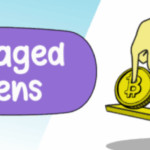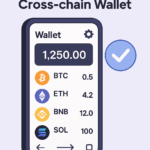In this post, I will cover the Interoperable Wallets For Cross-chain Defi which facilitate seamless management and transfer of assets across different blockchains.
These wallets provide access to decentralised finance (DeFi) tools spread over different networks and eliminate the need to pivot from one platform to another. I will focus on the best wallets that enable cross-chain interoperability while maintaining safety and simplicity for DeFi users.
Key Point & Interoperable Wallets For Cross-chain Defi
| Wallet Name | Key Point |
|---|---|
| MetaMask | Popular EVM-compatible wallet now supports cross-chain access via Snaps and bridges. |
| Trust Wallet | Multi-chain wallet with built-in DEX and bridge support for seamless DeFi access. |
| Best Wallet | Focused on DeFi with cross-chain swaps and dApp browsing across major blockchains. |
| Zengo | MPC-based security wallet enabling simple cross-chain asset management without seed phrases. |
| Ledger Nano X | Hardware wallet offering cross-chain security with Ledger Live and integrated bridges. |
| Pillar Wallet | Smart wallet supporting EVM chains with multi-chain DeFi support and gas abstraction. |
| imToken | Ethereum-based wallet with support for multiple chains and integrated token swapping. |
| OMNI | Unified wallet offering DeFi access across multiple chains through integrated protocols. |
| rhino.fi Wallet | Layer 2 DeFi wallet supporting cross-chain swaps with Layer 1 bridges and self-custody. |
| Zerion Wallet | Web3 wallet aggregating assets and DeFi across multiple EVM-compatible chains in one view. |
1. MetaMask
MetaMask is one of the most popular wallets used for cross-chain DeFi, and works with Ethereum and other EVM-compatible blockchains. With MetaMask Snaps and integrated bridges, it facilitates transfers through Polygon, BNB Chain, and Avalanche.
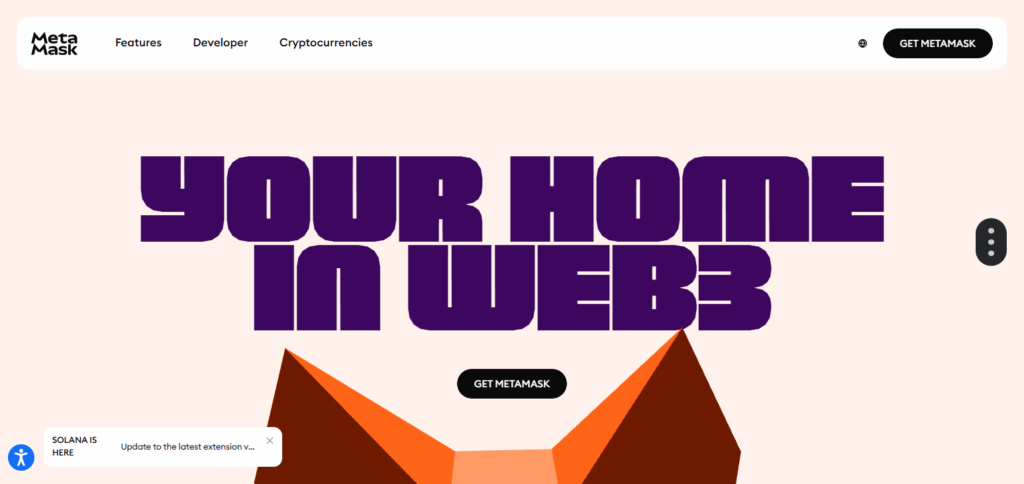
Users have access to DeFi platforms, can execute token swaps, and interact with dApps from the browser extension or mobile app. It also allows fiat-to-crypto transactions through MoonPay and Transak.
MetaMask does not have an in-built exchange but works with aggregator 1inch. It was started in 2016 and provides user support via documentation, ticketing systems, community chatrooms which improves reliability for DeFi users.
| Feature | Details |
|---|---|
| Wallet Name | MetaMask |
| Founded Year | 2016 |
| KYC Requirement | None (KYC only needed for third-party onramps like MoonPay) |
| Supported Chains | Ethereum, BNB Chain, Polygon, Avalanche, and other EVM-compatible networks |
| Cross-chain Support | Via MetaMask Snaps and integrated bridge tools |
| Fiat Payment Options | Supported via third parties (e.g., MoonPay, Transak) |
| Exchange Support | Integrated with DEX aggregators like 1inch and Paraswap |
2. Trust Wallet
Founded in 2017 and later acquired by Binance, Trust Wallet is a cross-chain DeFi wallet. Over 70 supported blockchains including Ethereum, BNB chain, Solana, and Polygon make it possible for users to manage diverse assets in one location.
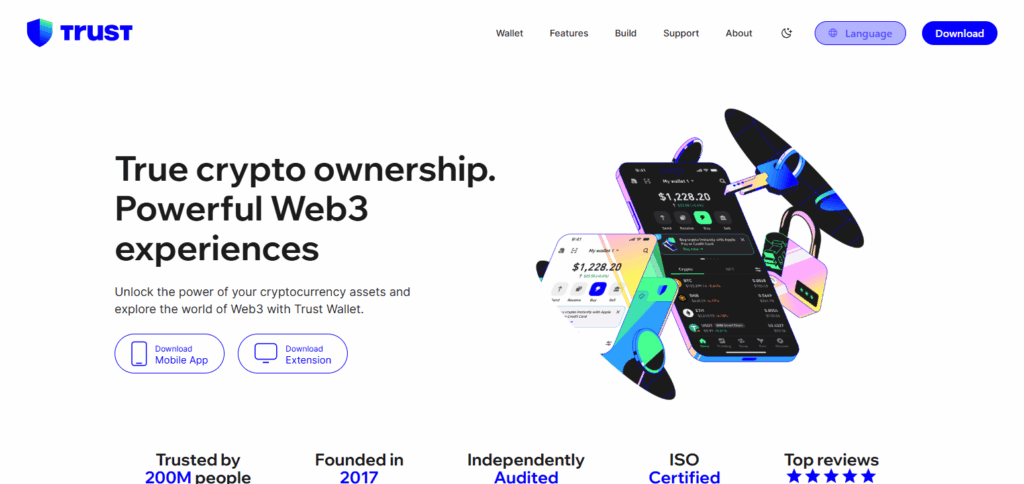
Through partners like MoonPay, Ramp, and Simplex, the wallet offers fiat to crypto purchases. Trust Wallet has an integrated DApp browser and supports token swaps through DEXs such as Uniswap and PancakeSwap.
Users have the option to stake holdings within the app as well. Support is accessible through an exhaustive help center, ticketing system, active community forums which together ensure ease of use for DeFi enthusiasts.
| Feature | Details |
|---|---|
| Wallet Name | Trust Wallet |
| Founded Year | 2017 (acquired by Binance in 2018) |
| KYC Requirement | None (KYC only applies to third-party payment providers) |
| Supported Chains | Ethereum, BNB Chain, Solana, Polygon, and 70+ blockchains |
| Cross-chain Support | Built-in DEX and bridge support for token swaps across networks |
| Fiat Payment Options | Available via MoonPay, Simplex, Ramp |
| Exchange Support | Integrated with Uniswap, PancakeSwap, and other DEXs |
| Customer Support | Help center, ticket submission, active community forums |
| Best Use Case | Mobile DeFi access with multi-chain asset management |
3. Best Wallet
Best Wallet is a modern wallet created by the Bitget team in 2023. It enables users to engage in cross-chain DeFi and Web3 activities. The wallet supports important chains such as Ethereum, BNB Chain, Polygon, ETC with built-in cross-chain swapping and bridging features.
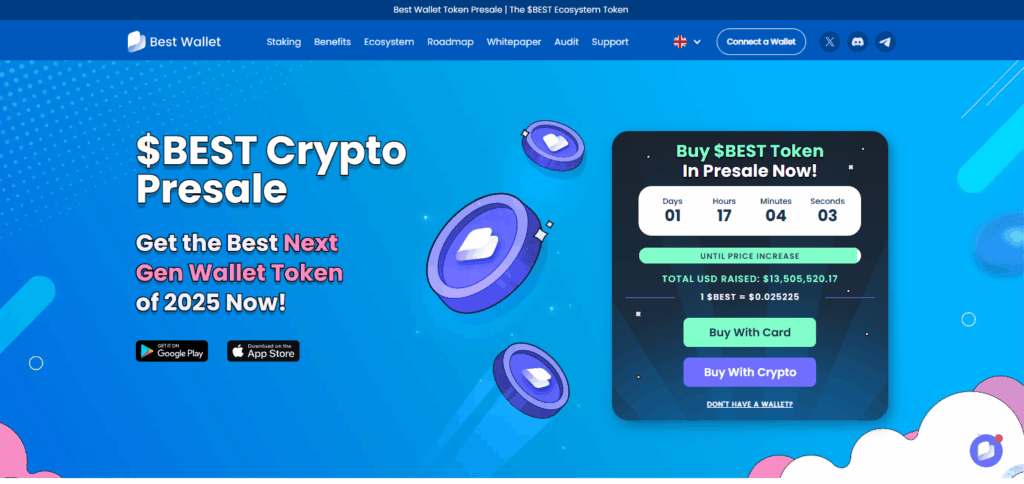
Purchasing cryptocurrency through credit/debit cards or bank transfers is also enabled using MoonPay and Banxa. It integrates with Bitget Exchange so that users can trade and manage their assets from a single interface.
Best Wallet has NFT functionalities, portfolio monitoring, dApp connection, instantaneous asset valuation updates, and much more. They offer live chat and email support around the clock which provides good support for both beginners and experts.
| Feature | Details |
|---|---|
| Wallet Name | Best Wallet |
| Founded Year | 2023 (developed by Bitget) |
| KYC Requirement | None for wallet use (KYC only for linked fiat services or exchanges) |
| Supported Chains | Ethereum, BNB Chain, Polygon, and other major EVM-compatible networks |
| Cross-chain Support | Built-in cross-chain swap and bridging tools |
| Fiat Payment Options | Supported via MoonPay, Banxa, and other partners |
| Exchange Support | Integrated with Bitget Exchange and third-party DEXs |
| Customer Support | 24/7 live chat and email support |
| Best Use Case | Unified DeFi, NFT, and asset management across multiple chains |
4. Zengo
Zengo is a non-custodial wallet established in 2018 that enables interoperability and Multi-Party Computation (MPC) powered sequencing technology. It offers services for major blockchains like Bitcoin, Ethereum, and Polygon with future prospects of cross-chain expansion.
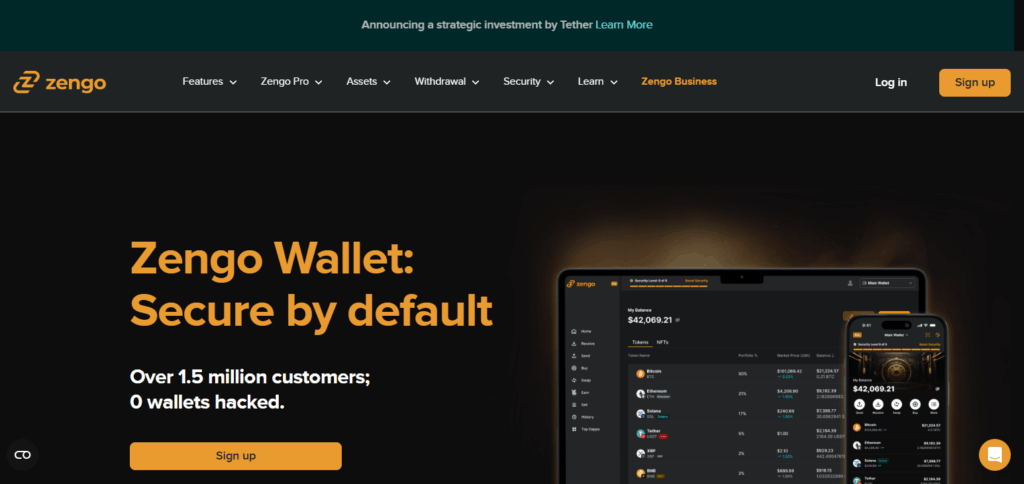
MoonPay and Banxa allow users to purchase crypto through credit cards, Apple Pay, or bank transfers. Zengo facilitates integrated swaps through Changelly but offers less access to DeFi and dApps than other wallets.
As far as crypto wallets go, Zengo’s 24/7 live customer support is unprecedented which makes it stand out from the rest. Prioritizing security while maintaining ease of use makes Zengo perfect for multi-chain asset management.
| Feature | Details |
|---|---|
| Wallet Name | Zengo |
| Founded Year | 2018 |
| KYC Requirement | None for wallet use (KYC only for fiat purchases via third-party providers) |
| Supported Chains | Bitcoin, Ethereum, Polygon, Tezos |
| Cross-chain Support | Limited native support; expanding via integrations |
| Fiat Payment Options | Credit/debit cards, Apple Pay, bank transfers via MoonPay, Banxa |
| Exchange Support | Built-in swaps via Changelly |
| Customer Support | 24/7 live chat and help center |
| Best Use Case | Secure multi-chain wallet with seedless access and top-tier support |
5. Ledger Nano X
Launched in 2019, the Ledger Nano X wallet is a product of Ledger, which has been operational since 2014. It is a hardware wallet celebrated for its unparalleled security features and expanding interoperability supporting cross-chain decentralized finance (DeFi).
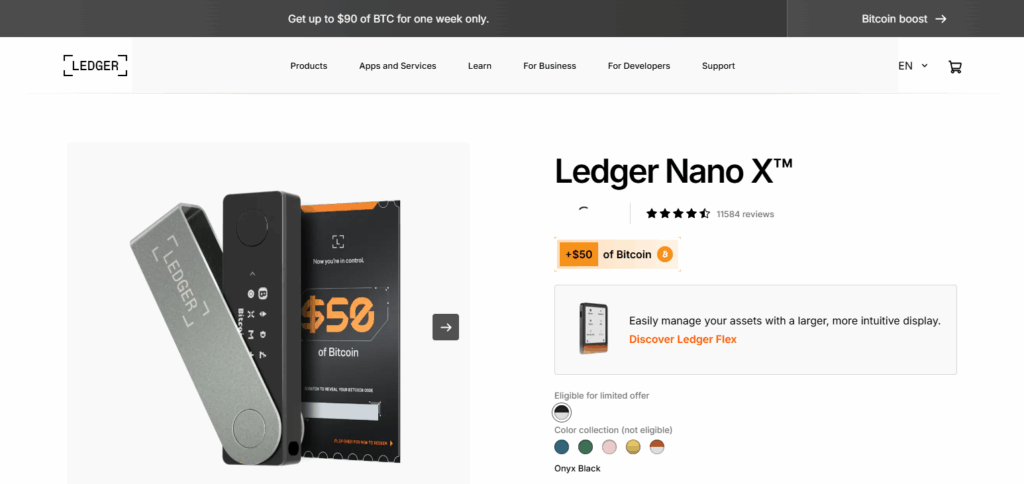
Currently, over 5,000 assets are supported on Ethereum, Bitcoin, Solana, and more. Users can purchase crypto via credit cards or bank transfers through the Ledger Live app using Coinify, MoonPay, or Ramp.
Also supports third-party dApps and DeFi access through WalletConnect enabling token swaps. Although built-in bridging is not provided by ledgers; cross-chain functionality can be added through other apps. Customer support consists of a help center with email assistance as well as an active online community.
| Feature | Details |
|---|---|
| Wallet Name | Ledger Nano X |
| Founded Year | 2019 (by Ledger, established in 2014) |
| KYC Requirement | None for wallet use (KYC applies only to third-party fiat providers) |
| Supported Chains | Bitcoin, Ethereum, Solana, BNB Chain, 5,000+ assets across multiple chains |
| Cross-chain Support | Enabled via third-party bridges and WalletConnect through Ledger Live |
| Fiat Payment Options | Available via Coinify, MoonPay, Ramp |
| Exchange Support | Integrated with 1inch, ParaSwap, and DeFi platforms via Ledger Live |
| Customer Support | Email support, help center, active community |
| Best Use Case | High-security multi-chain DeFi and asset management |
6. Pillar Wallet
Pillar Wallet is an Ethereum and Layer 2 cross-chain DeFi smart contract wallet established in 2017. It works with EVM compatible chains like Ethereum, Polygon and Gnosis Chain, providing gas fee abstraction and smart automation functionalities.
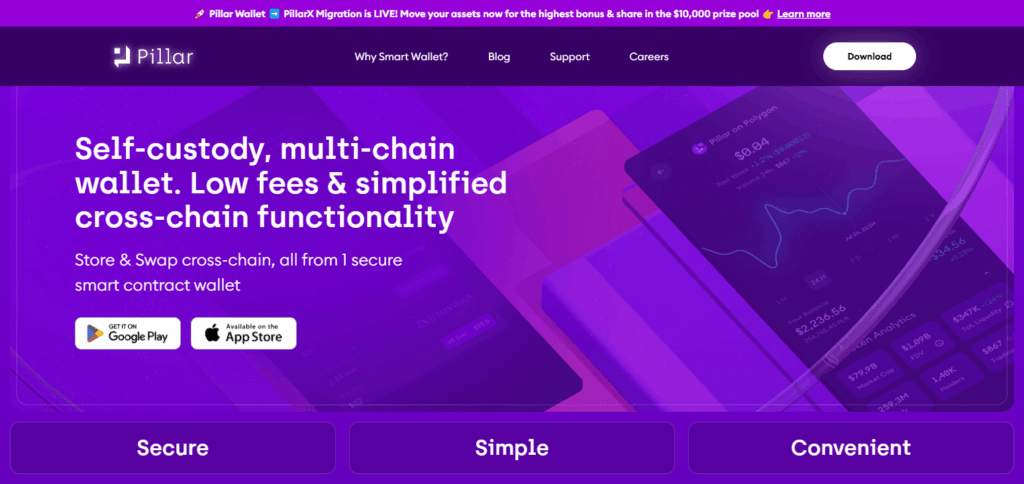
Through Transak integration, users can buy crypto using fiat currency. Though exchange support is limited, token swaps and DeFi interactions are supported via WalletConnect. Pillar places a greater emphasis on community governance as well as open-source development which provides transparency.
Customer support can be accessed through In-app resources, Discord or other social media platforms. For advanced DeFi users looking for privacy and control with multi-chain access, Pillar provides strong solutions.
| Feature | Details |
|---|---|
| Wallet Name | Pillar Wallet |
| Founded Year | 2017 |
| KYC Requirement | None (wallet use is fully non-custodial; KYC only for fiat providers) |
| Supported Chains | Ethereum, Polygon, Gnosis Chain, and other EVM-compatible networks |
| Cross-chain Support | Multi-chain access with smart wallet automation and bridge integrations |
| Fiat Payment Options | Supported via Transak |
| Exchange Support | Supports token swaps via integrated DEX aggregators |
| Customer Support | In-app support, community Discord, and help docs |
| Best Use Case | Advanced DeFi automation and gas abstraction across multiple EVM chains |
7. imToken
imToken is a non-custodial wallet founded by Ben He in 2016 with cross-chain interoperability spanning over 50 blockchains including Ethereum, BNB Chain, and Cosmos.
Serving over 20 million users in more than 150 countries, imToken facilitates crypto purchases through MoonPay and Transak integrations.
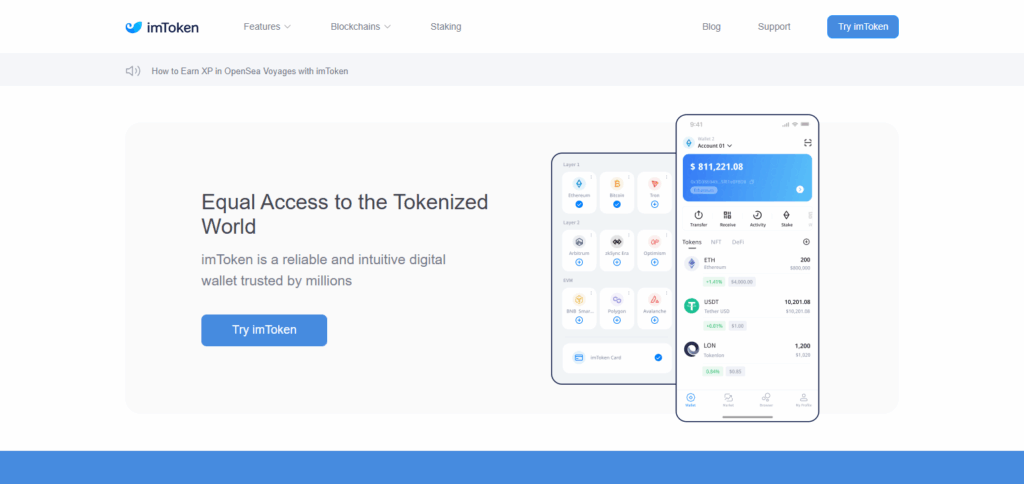
With cross-chain DeFi functions, imToken integrates with Celer cBridge for secure and low-cost transfers across 30+ blockchains and Layer 2 networks.
Also, the wallet comes with a DeFi Portfolio Manager powered by DeBank which supports over 300 DeFi protocols. The comprehensive help center together with active community assists customers through email support.
| Feature | Details |
|---|---|
| Wallet Name | imToken |
| Founded Year | 2016 |
| KYC Requirement | None for wallet usage (KYC only applies to third-party fiat services) |
| Supported Chains | Ethereum, Bitcoin, Cosmos, BNB Chain, and more |
| Cross-chain Support | Enabled via integration with Celer cBridge for cross-chain transfers |
| Fiat Payment Options | Supported via Simplex, MoonPay, and Transak |
| Exchange Support | Built-in token swaps through DEX aggregators |
| Customer Support | Email support, help center, Telegram community |
| Best Use Case | Multi-chain asset management with built-in DeFi access and swap features |
8. OMNI
Omni Wallet is a self-custodial wallet developed for effortless cross-chain DeFi engagements. It covers more than 27 blockchains which includes Ethereum, Solana, Cosmos, and Layer 2s like Arbitrum and Optimism.
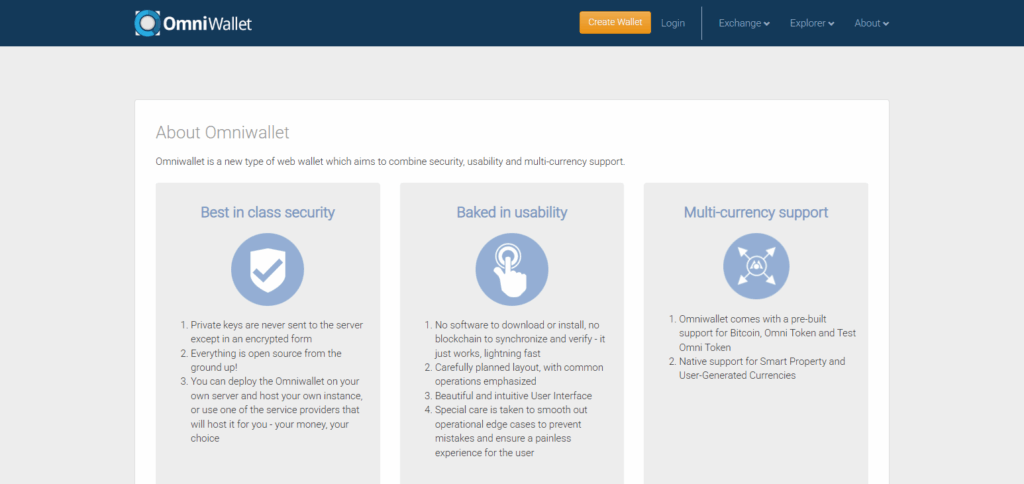
Omni was established in 2022 and incorporates with LI.FI for in-app multi-chain token bridging and swapping. MoonPay and Ramp allow users to buy crypto directly, stake assets within three taps through a patented process, and manage NFTs.
The wallet offers Ledget Nano X hardware integration which improves safekeeping of crypto assets. Customer support is offered via email as well as community forums. Together with powerful cross-chain functionalities Omni strives to deliver an all-in-one Web3 experience.
| Feature | Details |
|---|---|
| Wallet Name | OMNI Wallet |
| Founded Year | 2022 |
| KYC Requirement | None for wallet use (KYC only for fiat purchases via third-party services) |
| Supported Chains | Ethereum, Solana, Cosmos, Arbitrum, Optimism, and 30+ blockchains |
| Cross-chain Support | Enabled via LI.FI integration for bridging and swapping across chains |
| Fiat Payment Options | Available via MoonPay, Ramp |
| Exchange Support | Supports token swaps and dApp interaction across chains |
| Customer Support | Email support and active community channels |
| Best Use Case | Unified Web3 experience with seamless DeFi and NFT management |
9. rhino.fi Wallet
Rhino.fi Wallet, previously called DeversiFi, started in 2017 and rebranded in 2021. This self custodial Layer 2 wallet specializes cross-chain DeFi activities.
The wallet has over thirty supported blockchains such as Ethereum, Solana, Arbitrum, Optimism and Starknet which allows users to bridge, swap and invest without needing to change wallets.

In- app crypto purchases are available through partners such as Squarelink which serve as a fiat onramp.
It also enables its native governance token DVF offering users the ability to partake in platform governance. Customers are able to receive assistance through the comprehensive help center and community channels.
| Feature | Details |
|---|---|
| Wallet Name | rhino.fi Wallet |
| Founded Year | 2017 (rebranded from DeversiFi in 2021) |
| KYC Requirement | None for wallet and DeFi use (KYC may apply for fiat onramps) |
| Supported Chains | Ethereum, Arbitrum, Optimism, Starknet, Solana, and 30+ other blockchains |
| Cross-chain Support | Native bridging and swapping across chains using integrated protocols |
| Fiat Payment Options | Available via providers like Squarelink |
| Exchange Support | Built-in Layer 2 DEX and DeFi access |
| Customer Support | Help center, Discord community, and ticket system |
| Best Use Case | Gasless, s |
10. Zerion Wallet
The Zerion Wallet is a non-custodial Web 3.0 wallet issued in 2016 which allows users to participate in cross-chain DeFi activities on over 50 EVM compatible blockchains including Ethereum, Polygon and Avalanche.

Users can manage their multi-chain portfolios as well as calculate DeFi yields through a single interface . Zerion processes most DEXs and utilizes Socket and other interoperability protocols for cross-chain swaps which consolidate the bridging and swapping of tokens into one seamless step .
There is an automated tracker for diversified portfolios within the myriad of DeFi applications with aggregated position reporting.Zerion permits purchase of cryptocurrencies using credit or debit cards, bank transfers, moonpay and ramp.
| Feature | Details |
|---|---|
| Wallet Name | Zerion Wallet |
| Founded Year | 2016 |
| KYC Requirement | None for wallet use (KYC only required for fiat onramps via third-party services) |
| Supported Chains | Ethereum, Polygon, Avalanche, Arbitrum, Optimism, and other EVM-compatible chains |
| Cross-chain Support | Cross-chain swaps and portfolio tracking via integrated protocols like Socket |
| Fiat Payment Options | Supported through MoonPay, Ramp, and other fiat gateways |
| Exchange Support | Integrates with DEX aggregators and supports in-app token swaps |
| Customer Support | Help center, email support, and active community forums |
| Best Use Case | Comprehensive multi-chain DeFi portfolio management and cross-chain trading |
Conclusion
In summary, cross-chain DeFi interoperable wallets are essential in managing and transferring digital assets across different blockchain networks as they simplify the process.
These wallets help users interact with various DeFi platforms without switching wallets or chains which improves user experience efficiency. They are equipped with built-in swaps, bridge integrations, and even fiat onramps which allow both new and experienced users to securely navigate the growing DeFi ecosystem.
Different wallets offer varying security features like supported chains, customer service, protection of funds, ease of use, and interoperability making them crucial in selecting a portable wallet for decentralized finance.



